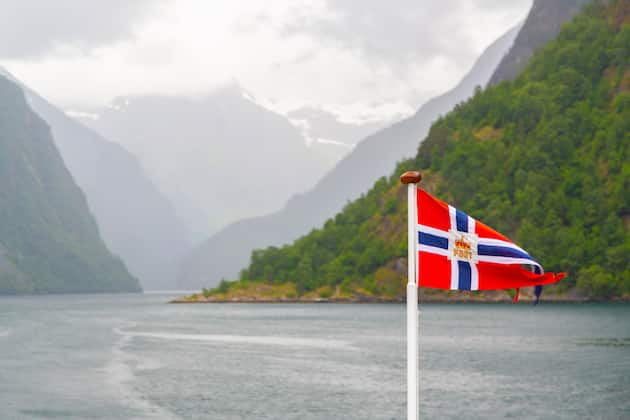Just a few days ago, Sweden reported finding huge amounts of rare earths. Now Norway has also discovered millions of tons of these important raw materials. But environmentalists have concerns about the mining.
A study has shown that large amounts of valuable raw materials such as rare earths, copper and cobalt are stored off the coast of Norway. “Among the metals found in the area covered by the investigation are magnesium, niobium, cobalt and rare earths that are on the EU Commission’s list of scarce minerals,” the Norwegian Petroleum Directorate (NPD) said.
The NPD estimates that 38 million tons of copper could be stored under the seabed. That is about twice the amount that is currently mined annually. Also suspected are 45 million tons of zinc and 1.7 million tons of cerium, a rare earth mineral used in aluminum processing.
Norway has a long mining tradition and a well-developed mining industry, particularly in ore and metal extraction and offshore oil and gas exploration. The country has therefore been considering opening up its offshore areas for undersea mining for some time. However, this would require Parliament’s approval.
More on the topic: Rare earths also discovered in Bavaria: But there is a catch
Environmental groups are already warning against further exploration of the seabed before further studies examine the effects of mining. The Norwegian Institute for Marine Research (IMR) also warned that there is still a lack of knowledge about life in the deep sea.
The Petroleum Directorate NPD also acknowledged that further research is needed to estimate how many of the materials could be mined under acceptable environmental conditions.
Just a few days ago, Norway’s neighboring country, Sweden, also reported a major discovery of rare earths. However, these are stored near Kiruna’s existing iron ore mines. But here too it is unclear when the rare earths can actually be promoted and whether the project would be economical at all.
Rare earths are used in industrial production for a variety of applications including electronics, power generation and storage, military technology, medical devices, and transportation. Availability is of great importance to Europe as the EU relies on it to remain competitive in these sectors. A lack of rare earths as a resource can lead to higher costs and delays in production – and hamper the development of innovative technologies.
China is currently the largest producer and supplier of rare earths in the world. The country controls around 60 percent of rare earth processing and refining. China has increased its extraction of rare earths in recent years and has specialized in refining and processing these resources to strengthen its value chain and gain greater control over the market.
!function(){var t=window.addEventListener?”addEventListener”:”attachEvent”;(0,window[t])(“attachEvent”==t?”onmessage”:”message”,function(t){if(“string”==typeof t.data








